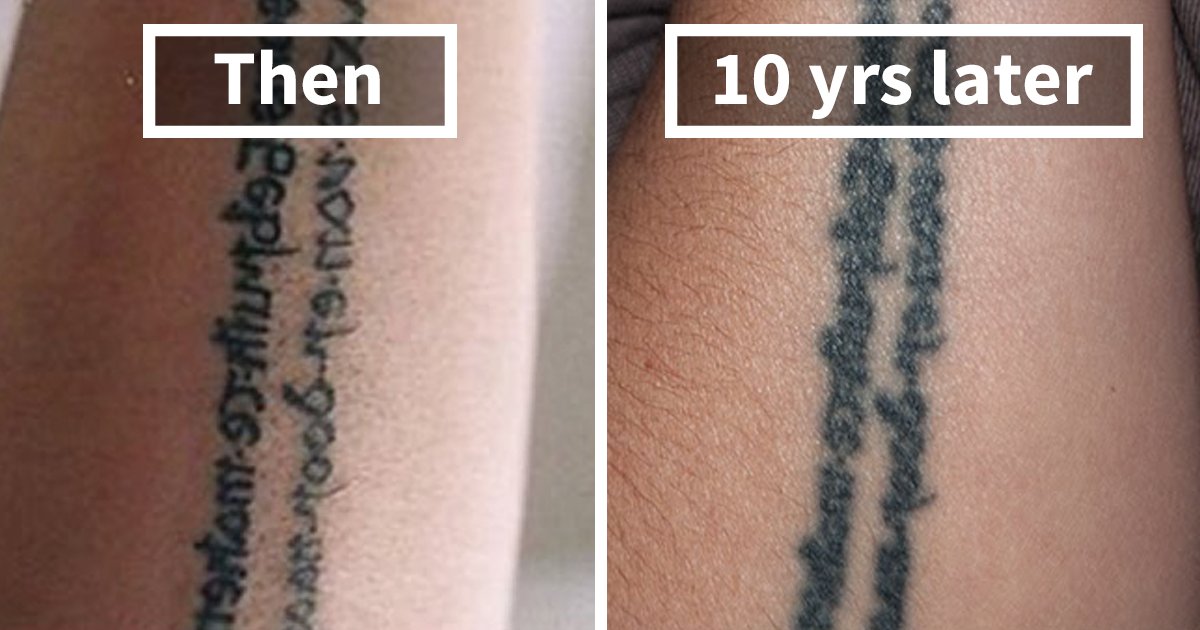Tattoos, like memories etched on skin, evolve over time. How do tattoos age? This question often lingers in the minds of ink enthusiasts and curious bystanders alike. As the years unveil their beauty or flaws, tattoos can transform, blur, or fade, becoming a roadmap of one’s journey through life. Factors such as sun exposure, skin elasticity, and ink quality play vital roles in this metamorphosis. Understanding how tattoos age can empower individuals to make informed decisions when embracing this art form. Join us as we delve into the intriguing world of tattoo aging.
How Do Tattoos Age: A Detailed Exploration
Welcome to our in-depth guide on how tattoos age! Tattoos have become a popular form of self-expression and artistry, but have you ever wondered how they change over time? In this article, we will delve into the fascinating world of tattoo aging, exploring what factors influence the way tattoos evolve, and how you can keep your ink looking fresh for years to come. Let’s start by understanding the basics of tattoo aging.
The Aging Process of Tattoos
As you may know, tattoos are created by injecting ink into the dermis layer of the skin using needles. Over time, our skin undergoes natural changes such as cell turnover, collagen breakdown, and exposure to the sun’s UV rays. These factors play a significant role in how tattoos age.
Cell Turnover and Fading
Our skin constantly regenerates, shedding old skin cells and replacing them with new ones. This process can cause tattoos to fade over time, especially in areas where the skin experiences a lot of friction or sun exposure. Colors may lose their vibrancy, and fine lines can blur as the tattoo ages.
Collagen Breakdown and Blurring
Collagen is a protein that provides structure and elasticity to the skin. As we age, collagen production decreases, leading to skin becoming looser and thinner. This can result in tattoos losing their sharpness and becoming blurry or distorted.
Factors Influencing Tattoo Aging
Several factors can influence how tattoos age, including:
- Sun Exposure: UV rays from the sun can break down the pigments in tattoos, causing them to fade and lose their clarity.
- Skin Type: Different skin types may respond differently to tattoo ink, with some skin types retaining color better than others.
- Tattoo Placement: Areas of the body that experience more rubbing or stretching, such as hands or feet, may see faster fading and blurring of tattoos.
- Tattoo Quality: The skill of the tattoo artist, quality of ink used, and aftercare practices can all impact how well a tattoo ages.
How to Maintain Your Tattoo’s Appearance
While some degree of tattoo aging is inevitable, there are steps you can take to help preserve your ink:
- Protect Your Skin: Use sunscreen to shield your tattoos from UV rays and prevent premature fading.
- Stay Hydrated: Keeping your skin hydrated can help maintain its elasticity and prevent excessive fading.
- Moisturize Regularly: Apply a tattoo-specific moisturizer to keep your skin healthy and your ink looking fresh.
- Avoid Excessive Sun Exposure: Limit the time you spend in direct sunlight to protect your tattoos from damage.
- Touch-Up When Needed: Consider getting touch-ups from your tattoo artist to maintain the sharpness and vibrancy of your tattoos.
Understanding how tattoos age is key to ensuring your ink remains a beautiful form of self-expression for years to come. By taking care of your skin, protecting your tattoos from the sun, and choosing a reputable tattoo artist, you can help preserve the longevity and quality of your body art. Embrace the changes that come with tattoo aging, knowing that each mark tells a unique story on the canvas of your skin.
5 Tattoos that age well and will look great FOREVER!
Frequently Asked Questions
How does a tattoo age over time?
As the skin naturally changes with age, tattoos can also be affected. Factors like sun exposure, skincare routines, and body movements can contribute to the fading and blurring of tattoos over the years.
What are some common signs of aging seen in tattoos?
Common signs of aging in tattoos include fading of colors, loss of sharpness in details, and potential spreading of the design due to skin stretching. Over time, the vibrancy of a tattoo may diminish.
Can tattoos be touched up to maintain their appearance as they age?
Yes, tattoos can be touched up to refresh their appearance as they age. Tattoo artists can carefully retrace lines, add more pigment, or adjust colors to restore the tattoo to its original quality.
How can one ensure their tattoos age well?
To help tattoos age well, it is essential to protect them from prolonged sun exposure by using sunscreen, moisturize the skin regularly, and avoid excessive stretching of the tattooed area. Following proper aftercare instructions and getting touch-ups when needed can also maintain the tattoo’s appearance over time.
Final Thoughts
Tattoos age due to factors like sun exposure and skin changes. Over time, tattoos may fade, blur, or spread out. Proper care and sunscreen can help slow down these effects. Understanding how tattoos age is crucial for maintaining their look. Regular touch-ups can keep tattoos looking fresh. In conclusion, knowing how tattoos age allows individuals to make informed decisions about their body art.




